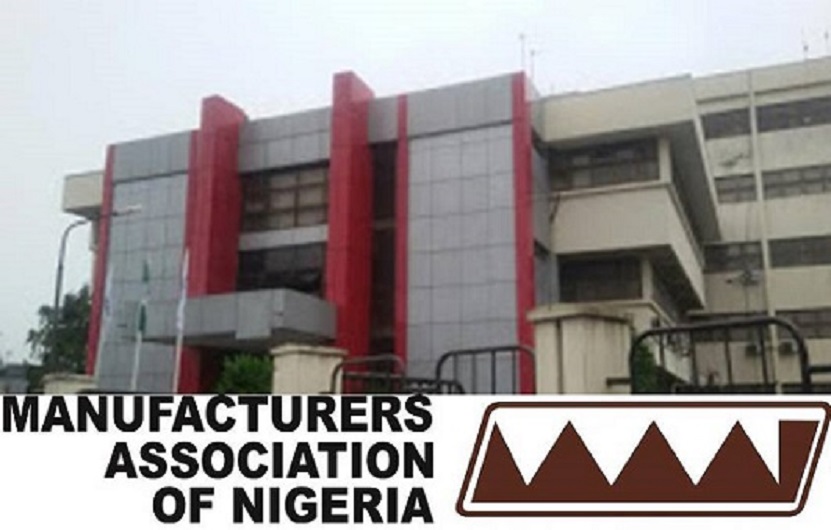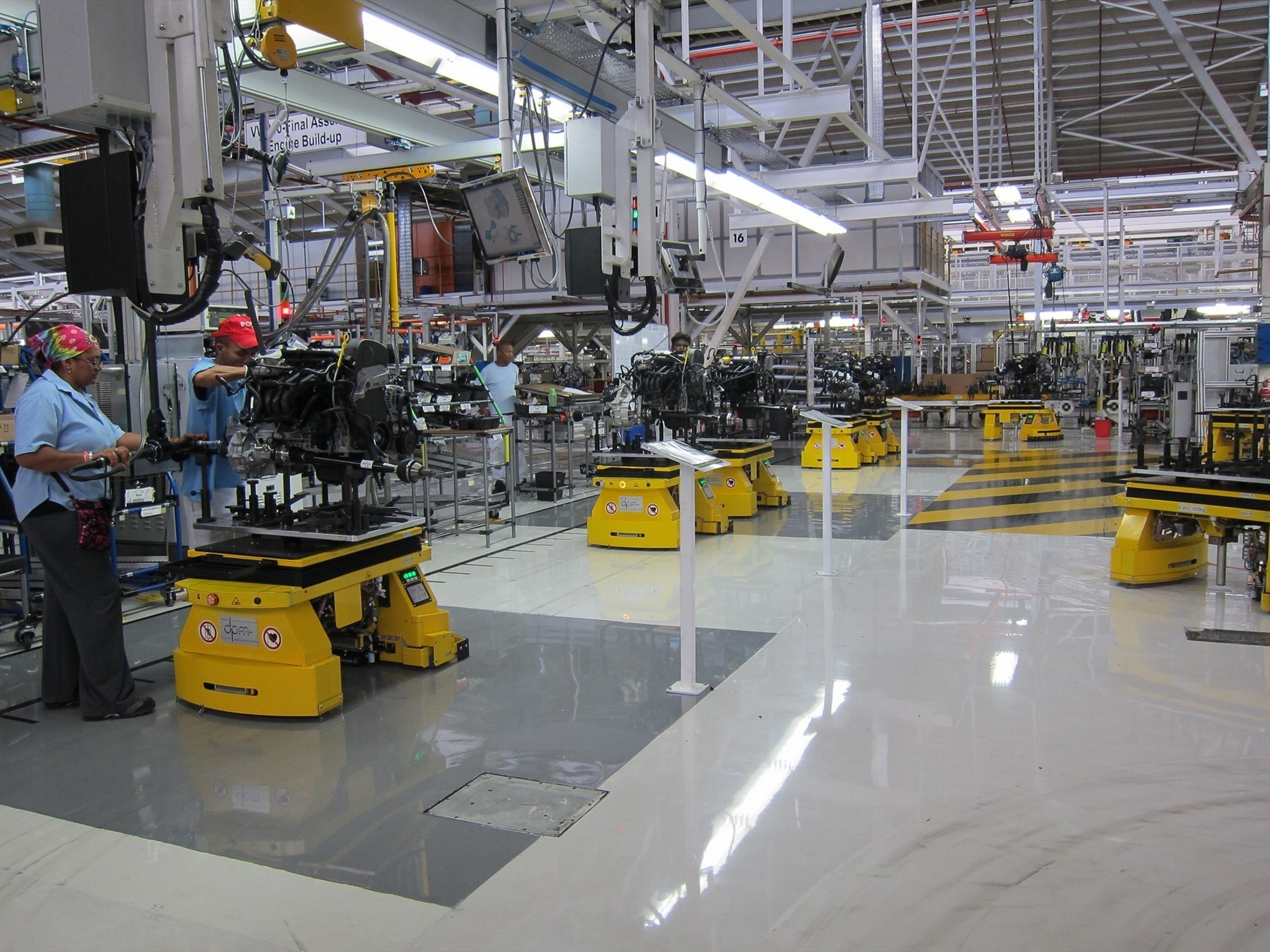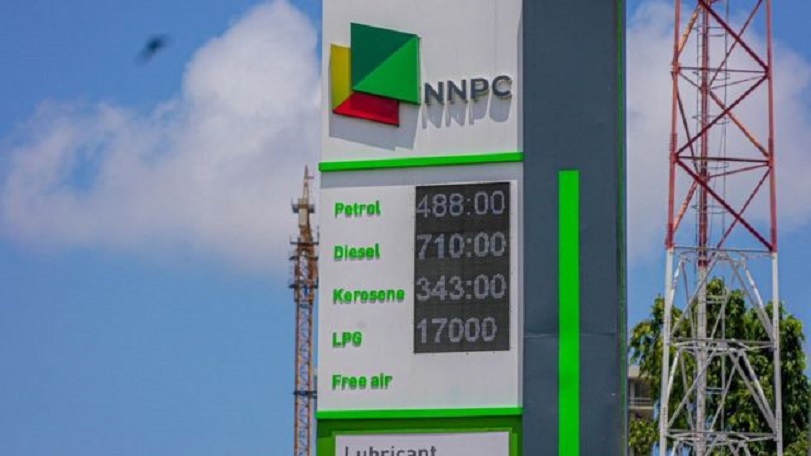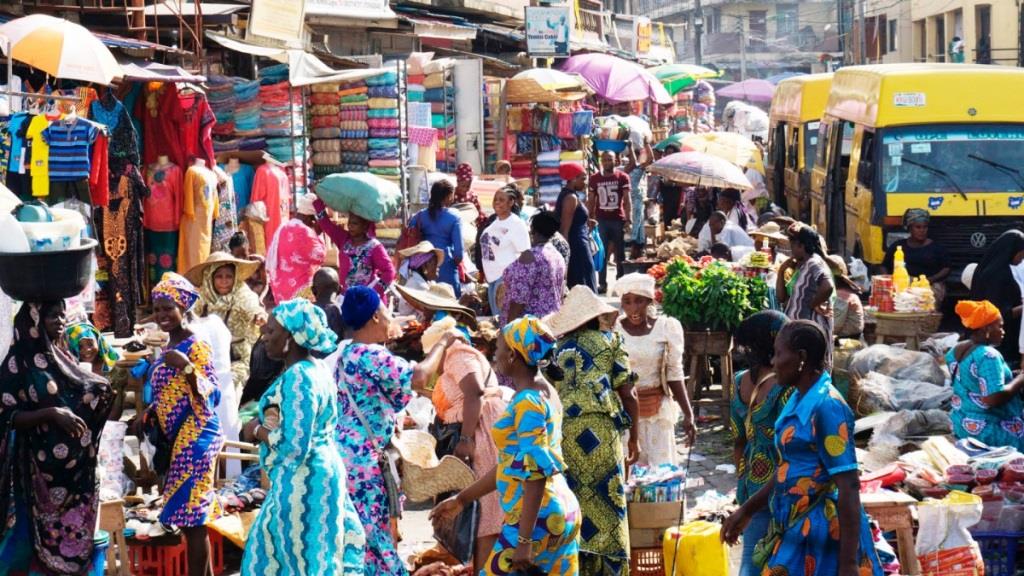Economy
BUA Cement, Others Boost Nigeria’s Manufacturing Production Value to N3.73trn

By Adedapo Adesanya
Nigeria’s manufacturing sector recorded N3.73 trillion in production in the second half of 2021, 58.1 per cent higher than the N2.36 trillion reported in the corresponding half of 2020.
The president of the Manufacturers Association of Nigeria (MAN), Mr Mansur Ahmed, disclosed at a presentation on Thursday that this growth is indicative of the development in the industry.
He noted that the manufacturing production value increased by N0.07 trillion or 1.9 per cent when compared with the N3.66 trillion achieved in the first half of last year, while the total value of production for the year stood at N7.03 trillion as against the N4.42 trillion posted in 2020, which was ravaged by COVID-19, which prompted lockdown in most part of the year.
Mr Ahmed said the increase in the manufacturing production value in the second half of 2021 was associated with increased cement production due to the new BUA cement factory in Sokoto; the African Glass new factory and activities of the five new papermills.
“This is also highlighted by the increased production value in the non-metallic mineral products sector to N374.41 billion in the second half of 2021 from N74.18 billion and N249.79 billion recorded in the corresponding half in 2020 and the preceding half respectively,” he said.
Also, capacity utilisation in the manufacturing sector increased to 59 per cent in the second half of 2021 from 53.7 per cent recorded in the corresponding half of 2020; indicating a 5.3 per cent increase over the period.
It increased by 6.6 per cent when compared with 52.4 per cent recorded in the preceding half and averaged 58.9 per cent in 2021 from the 49.5 per cent average in 2020.
He said Mr Ahmed attributed the increase in manufacturing capacity utilisation to the phasing of economic and social restrictions meant to contain the COVID-19 pandemic and the full rebounding of economic activities globally within the period.
“In addition, there are increased capacities in the paper subsector brought in by five new paper mills that are into recycling of waste papers to produce cartons.
“Also, the additional capacities as BUA Group introduced a cement factory in Sokoto and the new African Glass Ltd. factory that produced glass products influenced the development.
“The performance shows that manufacturing is fast returning to the 2019 pre-COVID-19 level of activities in the country,” he said.
The MAN President revealed that investments in the manufacturing sector increased to N73.18 billion from N56.44 billion recorded in the corresponding half of 2020; indicating N16.74 billion or 29.7 per cent increase over the period.
Ahmed said it increased by N70.96 billion or 49.3 per cent when compared with N144.14 billion recorded in the preceding half with manufacturing investment totalling N217.22 billion in 2021 as against N118.52 billion in 2020.
Manufacturing investment has been gradually recovering following the return of economic activities as the issues of the COVID-19 pandemic are continuously resolved.
“In the last year, significant investment has been recorded in the Pulp, Paper, Printing & Publishing (6Ps) sector with the establishment of five new paper mills that are into recycling of waste papers to produce cartons.
“There is also the new BUA Group cement factory in Sokoko; and the new African Glass Limited factory that produced glass products,” he said.
Also, the total historical cumulative jobs in the manufacturing sector were estimated at 1,671,441 by the end of 2021, based on surveys conducted since 2013.
According to the report, a total of 8,508 jobs were created in the sector in the second half of 2021 as against 3,451 jobs recorded in the corresponding half of 2020 and 7,602 jobs created in the preceding half.
“The total net employment in the sector in 2021, after adjusting for job losses was 11,659 while net job losses in 2020 were 3,257.
“The trend indicates that manufacturing job is also rebounding following the gradual return of economic activities in the sector after a year onslaught brought by COVID-19 pandemic,” it read.
Mr Ahmed said Foreign Direct Investment (FDI) recorded $107.81 million in the third quarter of 2021; translating to a pick up from the downward trend of FDI in the country since the fourth quarter of 2020.
He said the association’s data also revealed an increase from $77.97 million recorded in the second quarter of 2021, which was the lowest level recorded for the past 11 years.
He noted that the report of the manufacturing sector’s FDI revealed an uptick in the third quarter of 2021 when compared with the data recorded in the last three quarters.
“Therefore, the third quarter figure of $107.81 million indicates 29.84 million dollars or 38.27 per cent increase when compared with $77.97 million recorded in the second quarter.
“The figure indicates a drop of $306.98 million or 74.01 per cent when compared with $414.79 million recorded in the corresponding quarter of 2020.
“The third quarter report of NBS revealed that the foreign Portfolio Investment increased to 1217.21 million dollars from $551.37 million dollars indicating, $665.84 million or 120.76 per cent increase over the period,” he said.
Similarly, the figure revealed an increase of $809.96 million or 198.89 per cent when compared with $407.25 million recorded in the corresponding quarter of 2020.
“The FDI increased to $323.83 million in the third quarter of 2021 from 68.03 million dollars recorded in the second quarter of 2021, thus indicating $255.80 million or 376.01 per cent increase over the period.
“However, the report indicated $76.26 million or 19.06 reduction when compared to $400.09 million recorded in the third quarter of 2020,” Mr Ahmed added.
He, however, said local raw materials utilisation in the manufacturing sector dipped to 51.7 per cent in the review period from 56.5 per cent in the corresponding period of 2020; indicating a 4.8 per cent decline over the period.
He noted that since the full opening of the economy from the COVID-19 pandemic, local raw materials and other manufacturing inputs had been relatively scarce and costly.
The MAN boss also said the inventory of unsold finished products dipped to N224.63 billion in the second half of 2021 from N303.22 billion recorded in the corresponding half of 2020.
This, he said, indicated a N78.59 billion or 25.9 per cent decline over the period.
“However, it increased by N9.8 billion or 4.6 per cent when compared with N214.83 billion recorded in the preceding half.
“Inventory in the sector totalled N439.46 billion in 2021 as against N577.61 billion recorded in 2020. “The decline in inventory in the period under review was attributed to the recovering aggregate consumption following the gradual rebounding of economic activities as COVID-19 pandemic receded,” he said.
Economy
Grey to Cut Cross-Border Payment Costs with New USD Offering

By Adedapo Adesanya
A cross-border payments solutions company, Grey has expanded its business banking platform to include US Dollar corporate accounts, bulk international payments, and USDC stablecoin support, all integrated into a single system.
The company is positioning itself as a low-cost, faster alternative to traditional international banking, particularly for businesses in emerging markets as it enables companies to open US Dollar accounts, receive global payments, and send payouts to 170+ countries, including bulk transfers, within minutes.
Grey aims to solve common cross-border payment challenges, particularly the high transfer costs that often range between 6 and 7 per cent of transaction value, prolonged settlement cycles that can stretch across several days, and the limited access many businesses face when trying to open and operate foreign currency accounts. In addition, companies frequently contend with hidden intermediary fees and poor foreign exchange transparency, both of which undermine cost predictability and effective cash flow management.
By integrating USD business accounts and USDC stablecoin functionality into its platform, Grey enhances its value proposition around faster settlement, clearer pricing structures, improved cost efficiency, and broader global accessibility. The expanded capabilities enable businesses to manage international transactions with greater speed, transparency, and operational control.
“Businesses may operate without borders today, but access to reliable global banking remains uneven, particularly for companies in high-growth markets,” said Mr Idorenyin Obong, Co-founder and Chief Executive Officer of Grey. “We’re closing that gap and enabling businesses to move money faster, with greater transparency and control, wherever their clients or partners are based.”
“When payments are delayed, or costs are unpredictable, growth stalls,” added Mr Joseph Femi Aghedo, Chief Operating Officer and Co-founder of Grey. “Grey eliminates those friction points, giving businesses a faster, simpler way to manage payroll, supplier payments, and partner payouts across borders. Adding USD and stablecoin capabilities makes these benefits accessible to even more customers.”
Established in Africa in 2020, Grey has a presence in key markets, including the United States, the United Kingdom, and Europe, and has recently expanded its services and operations into Latin America and Southeast Asia.
Since its inception, the company has consistently enhanced its services to empower digital nomads worldwide, regardless of location. Grey’s offerings include multi-currency accounts, low-cost international money transfers, a virtual USD card, expense management tools, and robust security measures.
Economy
Quidax, Lisk to Unlock Stablecoins, On-chain Financial Opportunities

By Aduragbemi Omiyale
A partnership designed to expand access to stablecoins and on-chain financial opportunities for everyday users and businesses has been entered into between Quidax and Lisk.
The partnership provides a critical gateway for the developer community, as builders on the Lisk network can now leverage Quidax’s robust digital asset infrastructure to access stablecoins and local currencies at competitive rates.
This institutional-grade infrastructure is designed to power “future-forward” financial products, ranging from neobanks and cross-border payment platforms to regional exchanges and global fintech solutions. It will also allow Quidax customers to trade and move value seamlessly using USDT, USDC, LSK, and Ether (ETH) on the Lisk network.
The collaboration will also accelerate the adoption of Web3 solutions that solve real-world financial challenges for millions of customers across Africa by combining Quidax’s deep local liquidity and compliant framework with Lisk’s scalable L2 technology.
In 2024, Quidax became the first crypto exchange to receive a provisional operating license from Nigeria’s Securities and Exchange Commission (SEC).
“The partnership with Lisk enables us to extend our platform to serve more people and cater to the increasing demand from products and services that want to integrate our stablecoin and digital assets product to build products across Africa,” the Chief Infrastructure Officer at Quidax, Mr Morris Ebieroma, said.
Also commenting, the Ecosystem Lead for Africa at Lisk, Ms Chidubem Emelumadu, said, “Africa represents one of the most critical frontiers for blockchain innovation, where the demand for reliable and inclusive financial tools is urgent.
“Our partnership with Quidax expands access to stablecoins and on-chain financial opportunities for everyday users and businesses. At the same time, it gives founders building on Lisk the critical infrastructure they need to create solutions that can scale meaningfully across the continent,” she added.
Economy
Customs Urges Freight Forwarders to Adopt Automated Licence, Permit System

By Adedapo Adesanya
The Nigeria Customs Service (NCS) has urged freight forwarders to adopt its automated Licence and Permits Processing system to reduce the cost of doing business.
This advice was given by the Assistant Comptroller-General of Customs, Mr Muhammed Babadede, during a stakeholders’ engagement on automation held in Lagos on Monday.
He noted that the reform responds to longstanding demands for faster, more transparent and simpler procedures for industry stakeholders, disclosing that Comptroller-General of Customs, Mr Bashir Adeniyi, has approved the full automation of the service’s licences and permits processes.
“For years, stakeholders dealt with paperwork, long queues and uncertainty from manual processing. Those days are coming to an end.
“This sensitisation is across all zones. The goal is to ensure stakeholders understand the automated system before implementation,” Mr Babadede said.
He said automation would enable applications and renewals from offices or mobile phones, eliminating visits to customs formations, assuring stakeholders of a fair and consistent process, and reducing errors associated with manual documentation.
He said automation would improve record-keeping, supervision and service delivery without increasing pressure on officers.
The Deputy Comptroller-General, Tariff and Trade, CK Naigwan, also represented by Mr Babadede, reiterated management’s commitment to seamless implementation.
Meanwhile, the Comptroller of Customs for Licence and Permit Unit, Mrs Ngozika Anozie, praised the Comptroller-General for driving innovation within the Service, saying the automation aligns Customs procedures with global best practice and strengthens institutional efficiency.
According to her, the reform reflects the three-point agenda of the Chairman of the World Customs Organisation, Mr Adeniyi, centred on consolidation, collaboration and innovation.
She said the system would enhance the ease of doing business in the maritime sector and boost national revenue generation.
“Automation will cut business costs and reduce travel risks for stakeholders
“They will no longer travel repeatedly to Abuja, paying for transport, hotels and feeding to process licences and permits,” she said, adding that the platform would automatically reject fake documents and accept genuine submissions, curbing fraudulent practices.
“The CGC is determined to sanitise the system, and we are committed to achieving that objective,” Mrs Anozie said.
On his part, the Assistant Superintendent of Customs, Mr Ibrahim Usman, said the Licence and Permit Unit operates under the Tariff and Trade Department.
He explained that the unit ensures proper issuance of licences and permits and compliance with import regulations.
Mr Usman said all licences and permits expire on December 31 of their issuance year.
He added that the portal would become fully operational after nationwide sensitisation, with stakeholders duly informed.
Customs Area Controller, Tincan Island Command, Mr Frank Onyeka, thanked stakeholders for their continued support.
He urged them to take the exercise seriously to achieve seamless processing across Customs operations.
Stakeholders raised concerns about online payment integration and potential technical disruptions.
Officials addressed the questions and pledged continued engagement to ensure smooth implementation nationwide.
-

 Feature/OPED6 years ago
Feature/OPED6 years agoDavos was Different this year
-
Travel/Tourism10 years ago
Lagos Seals Western Lodge Hotel In Ikorodu
-

 Showbiz3 years ago
Showbiz3 years agoEstranged Lover Releases Videos of Empress Njamah Bathing
-

 Banking8 years ago
Banking8 years agoSort Codes of GTBank Branches in Nigeria
-

 Economy3 years ago
Economy3 years agoSubsidy Removal: CNG at N130 Per Litre Cheaper Than Petrol—IPMAN
-

 Banking3 years ago
Banking3 years agoSort Codes of UBA Branches in Nigeria
-

 Banking3 years ago
Banking3 years agoFirst Bank Announces Planned Downtime
-

 Sports3 years ago
Sports3 years agoHighest Paid Nigerian Footballer – How Much Do Nigerian Footballers Earn




















